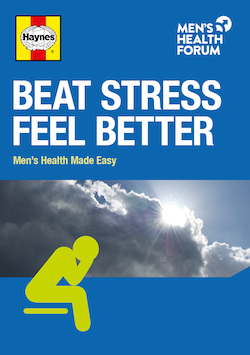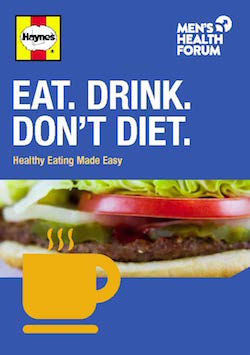Want to survive the World Cup?
Every two years, football-loving readers of the more obscure male health studies get worried. Not just about their team but about their fans.
This is because serious scientific research (the BMJ no less), found that on the day England lost to Argentina on penalties in the 1998 World Cup, male hospital admissions for heart attack increased by 25%. In the Netherlands, who take their football even more seriously and are also shocking at penalties, it's even worse. When the Dutch were knocked out of Euro 96 on penalties by France, male heart attacks increased by 50%. (Against France, the Netherlands missed just one penalty. Imagine the carnage after the semi-final of Euro 2000 when they missed five penalties against Italy.)
Yes, football can seriously damage your health. Fortunately, the Men's Health Forum has stepped in to put us all out of misery. Our new World Cup Survival Guide answers all the key questions.
MHF CEO Martin Tod says: 'Watching the World Cup can be bad for your health. Too much beer. Too many snacks, burgers and kebabs. Too much sitting down. Too much stress. It's a recipe for disaster. Hopefully our tips will mean that people can enjoy the game without doing too much GBH to their health.'
The guide includes:
- what to eat
- what to drink
- how to keep active during a footie marathon
- how to beat depression and
- how to survive the penalty shoot-out
Can you afford to watch another game without it?
|
The Men’s Health Forum need your support It’s tough for men to ask for help but if you don’t ask when you need it, things generally only get worse. So we’re asking. In the UK, one man in five dies before the age of 65. If we had health policies and services that better reflected the needs of the whole population, it might not be like that. But it is. Policies and services and indeed men have been like this for a long time and they don’t change overnight just because we want them to. It’s true that the UK’s men don’t have it bad compared to some other groups. We’re not asking you to ‘feel sorry’ for men or put them first. We’re talking here about something more complicated, something that falls outside the traditional charity fund-raising model of ‘doing something for those less fortunate than ourselves’. That model raises money but it seldom changes much. We’re talking about changing the way we look at the world. There is nothing inevitable about premature male death. Services accessible to all, a population better informed. These would benefit everyone - rich and poor, young and old, male and female - and that’s what we’re campaigning for. We’re not asking you to look at images of pity, we’re just asking you to look around at the society you live in, at the men you know and at the families with sons, fathers and grandads missing. Here’s our fund-raising page - please chip in if you can. |


